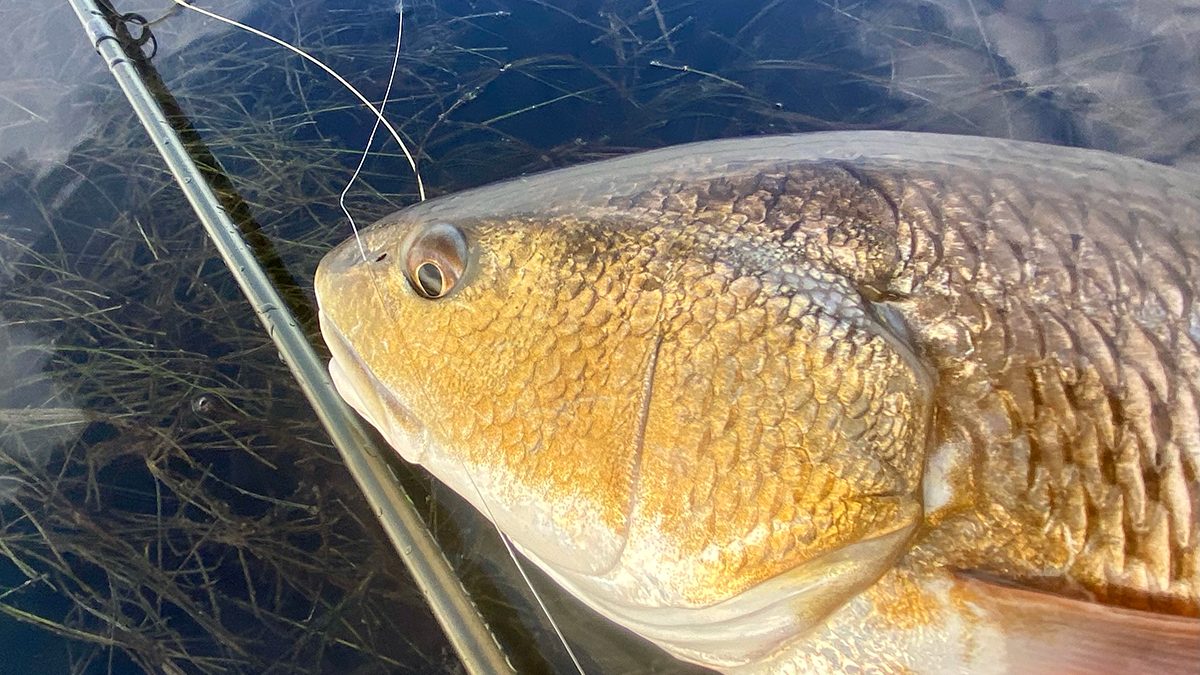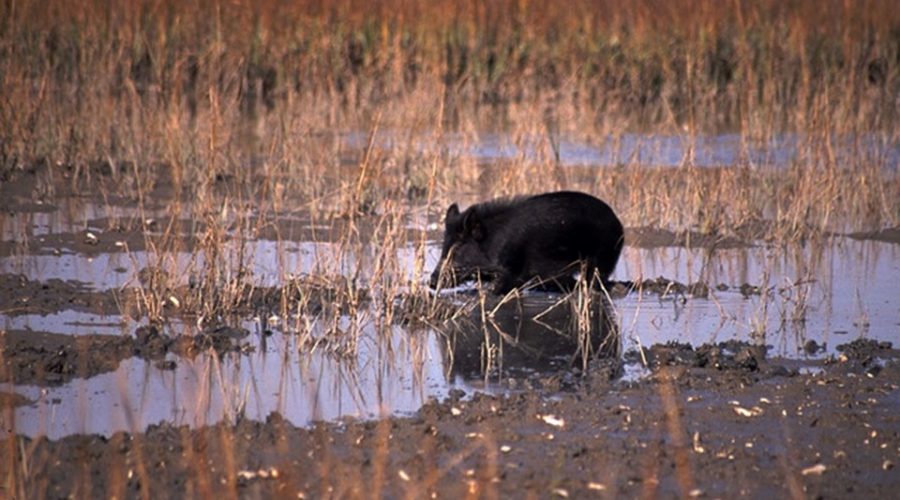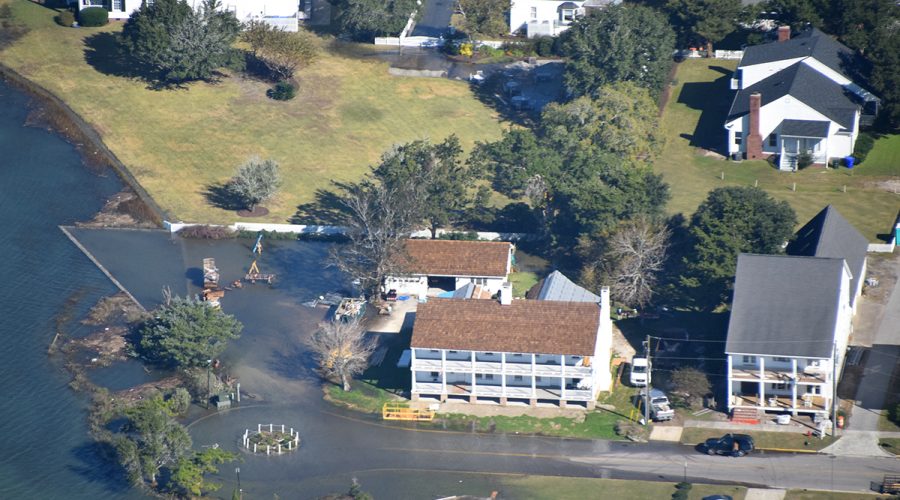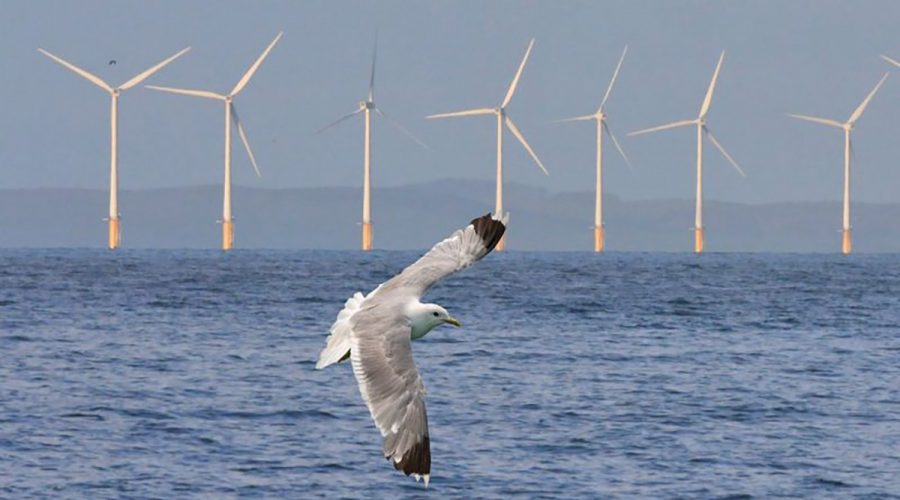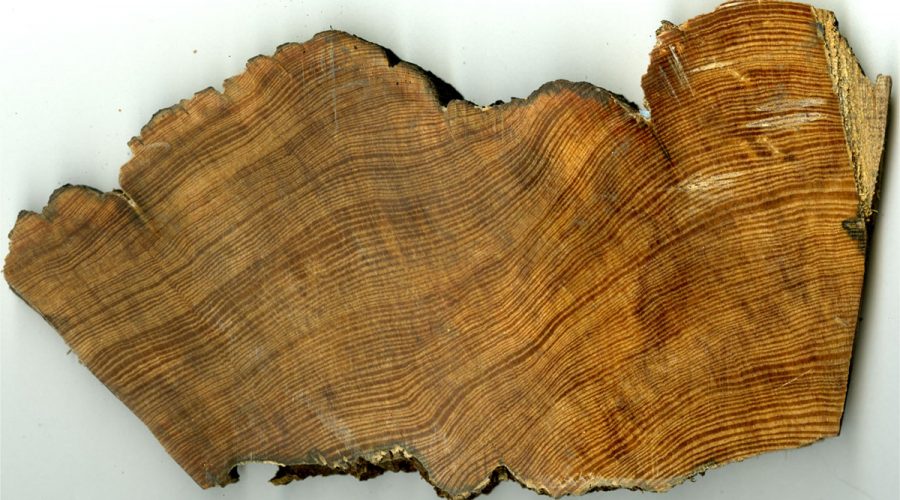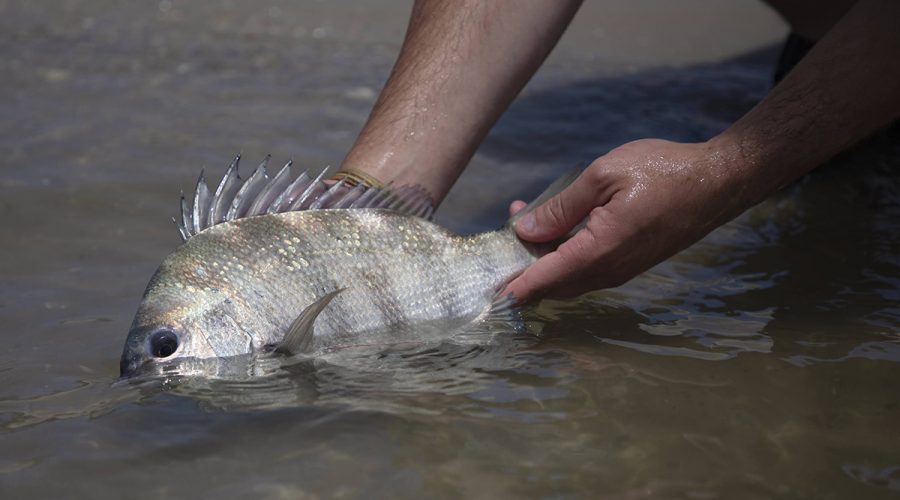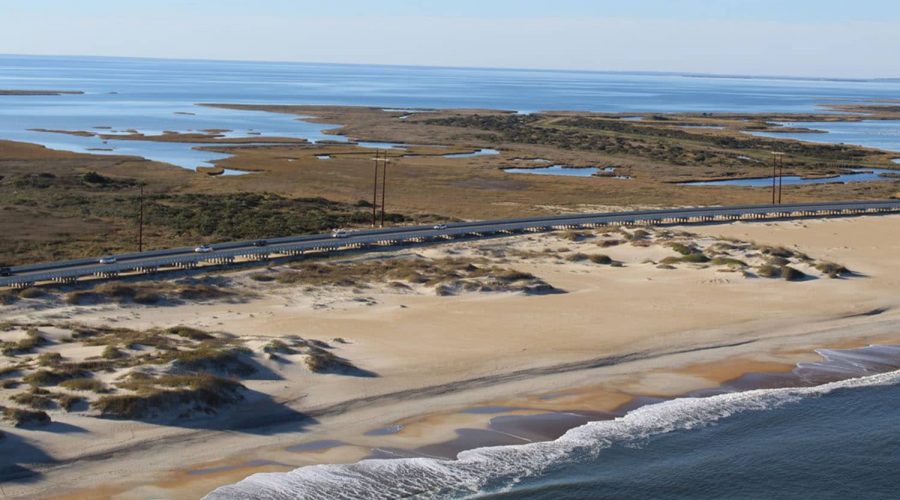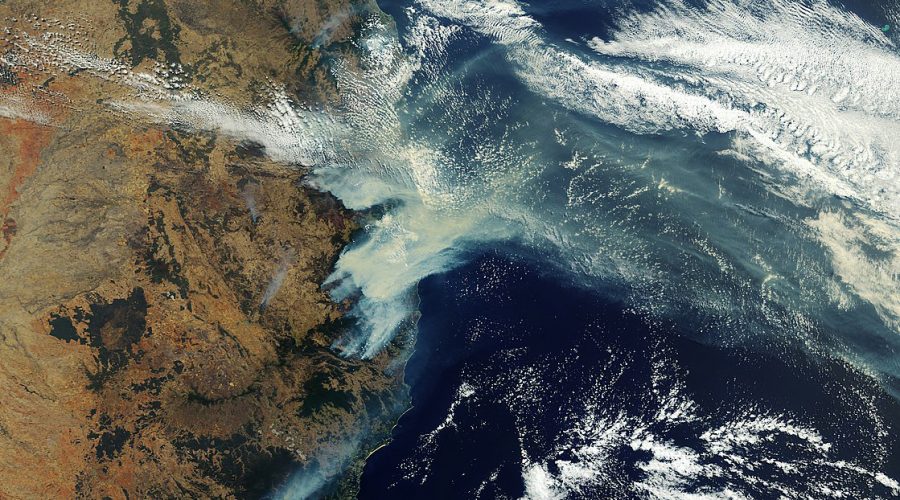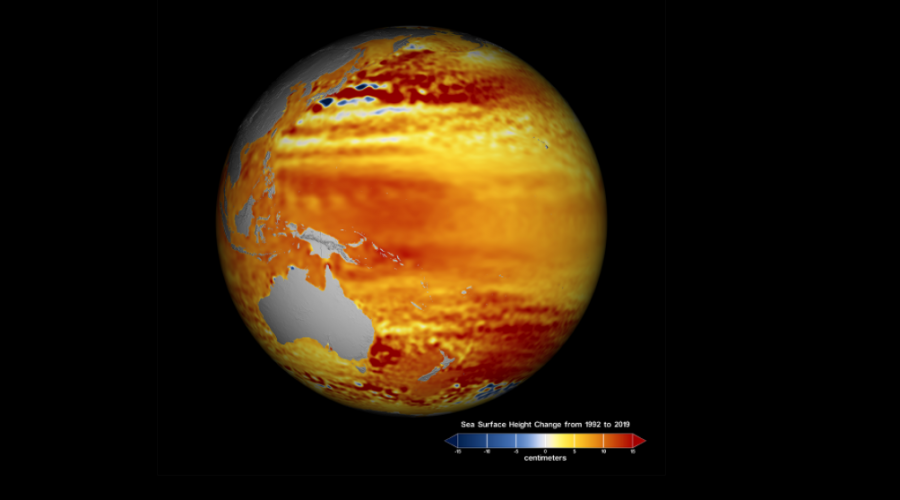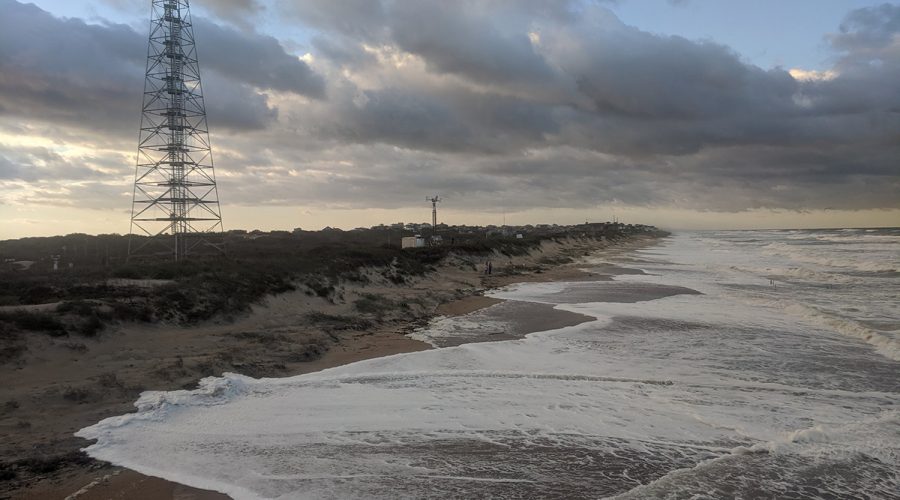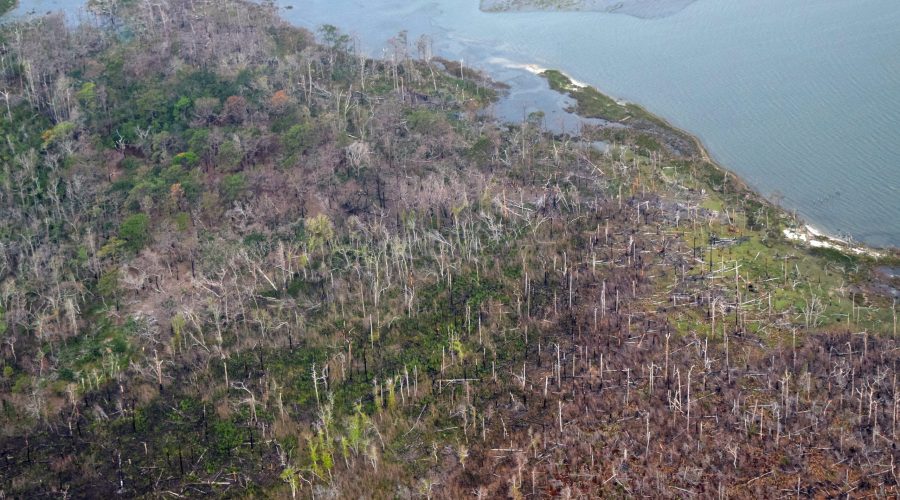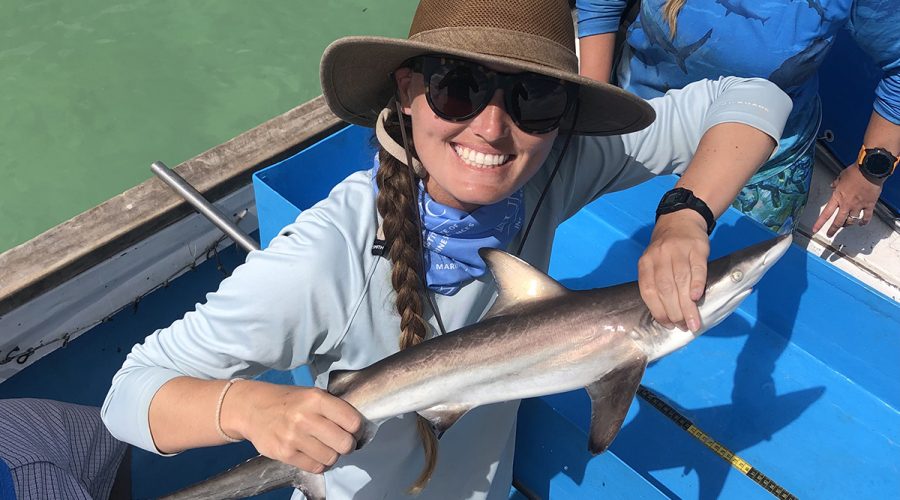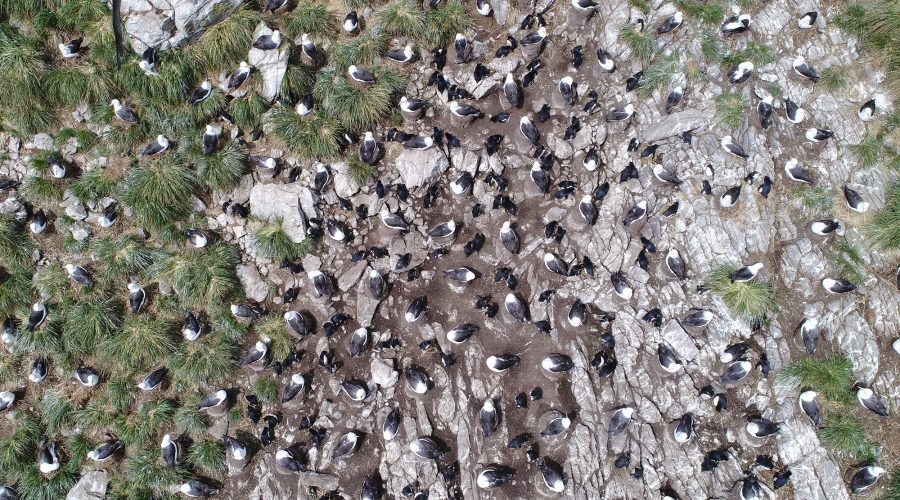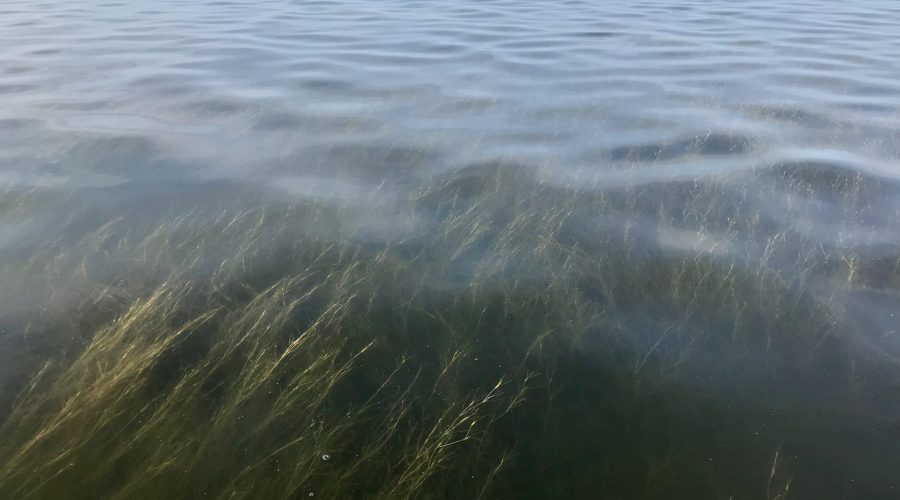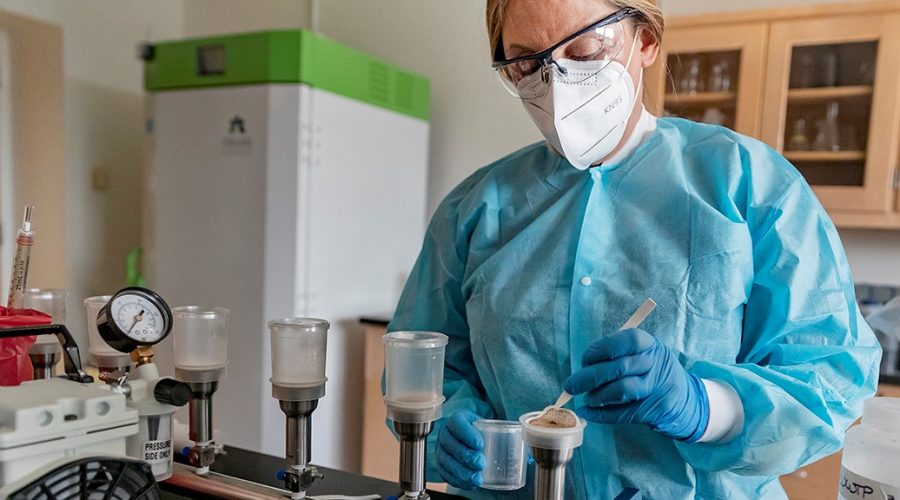A new UNCW study looks at how wind, water temperature and food source can affect juvenile red drum in nearshore areas.
Science
Feral hogs slow recovery of damaged salt marshes: study
A new study finds that the invasive species significantly slows the pace a salt marsh can adapt to climate change-related issues such as drought and sea level rise.
Storm drain sensors show more frequent nuisance flooding
“We’ve already started seeing how coastal communities are experiencing flooding more often than they were before and especially on sunny days, outside of storm events when tides are particularly high,” says UNC researcher Miyuki Hino.
Duke to study offshore wind energy’s effects on marine life
With a recently announced $7.5 million federal grant, Duke University is leading a research project to better understand how offshore wind development can affect marine species.
New research detects hurricane history hidden in tree rings
Research using core samples from trees in coastal savannas to reconstruct rainfall amounts from tropical cyclones of the past 300 years shows that storms are moving more slowly and dumping more and more rain.
Tagging study yields new understanding of sheepshead
Lewis Naisbett-Jones, a doctoral candidate at the University of North Carolina Chapel Hill, is doing research that may help state fisheries officials better understand how vulnerable the species could become to overfishing.
Changes to land from coastal storms can enhance habitat
Researchers have developed a way to use aerial images to show how barrier islands change over time and how natural processes that reshape islands and destroy infrastructure like N.C. 12 can also help coastal wildlife thrive.
Australian wildfires fertilized expansive algal blooms: Study
A recently published study by Duke University researchers found that particles in smoke and ash from Australian wildfires fed unprecedented algal blooms far away in the ocean.
Montreal Protocol prevented carbon sink losses: study
The Montreal Protocol, signed in 1987, has not only helped protect Earth from ozone loss related to chlorofluorocarbons, researchers have found that it also prevented a significant loss of sequestered carbon.
Lunar ‘wobble’ gets attention but sea levels are the problem
Cyclical variations in the moon’s orbit around Earth are nothing new, but the resulting rapid increases in tidal flooding in combination with rising sea levels will likely create myriad coastal problems in the future.
DUNEX research, delayed by pandemic, set to resume
Stalled for more than a year, the collaborative research effort known as the DUring Nearshore Event Experiment, or DUNEX, is set to continue its study of coastal processes, including during extreme storms, at locations on the Outer Banks this fall and winter.
LiDAR data can inform planning for sea level rise: Study
A recent study is the first worldwide elevation model using satellite Light Detection and Ranging, or LiDAR, data to evaluate what parts of the world are most vulnerable to sea level rise.
UNC institute’s shark survey a trove of 50 years of data
Long before sharks became a fearsome focus for filmmakers and TV programmers, scientists with the UNC Institute of Marine Sciencea’ shark survey began what is now considered a rare archive of consistent, long-term research.
Drones allow scientists a bird’s-eye view of seabird colonies
Instead of trekking on foot, a Duke University team used drones to count large seabird colonies on a small island chain off the Falkland Islands.
Threats to seagrass could cost state’s economy millions
A new report from Duke University and NC State estimates economic losses associated with the decline of submerged aquatic vegetation in the Albemarle-Pamlico estuary could total $8.6 million in 10 years.
UNC professor, state track COVID-19 trends in wastewater
Dr. Rachel Noble’s lab at UNC-IMS is set to expand sampling of the state’s wastewater for signs of the virus that causes COVID-19.

